Stephanie Cantrill
April 2024
Boy Swallows Universe and I Devour Books, Slowly
Honoré de Balzac
My 5-star reads of 2023
Want to know a secret? I’m a slow reader.
It doesn’t fit the picture of someone who claims to be a writer who loves books. But it’s true.
I think it’s because I don’t skim—I just have to read every word (side note: this happens to be an asset when it comes to proofreading 😉).
But a book doesn’t have to be over quickly to be good. And last year I read several that were incredible.
For the first time, I started recording, reviewing and rating my reads. (Okay but that was some fun alliteration.) And, of the 20 books I read last year, five of them—yes, FIVE—were five-star reads.
And here they are.
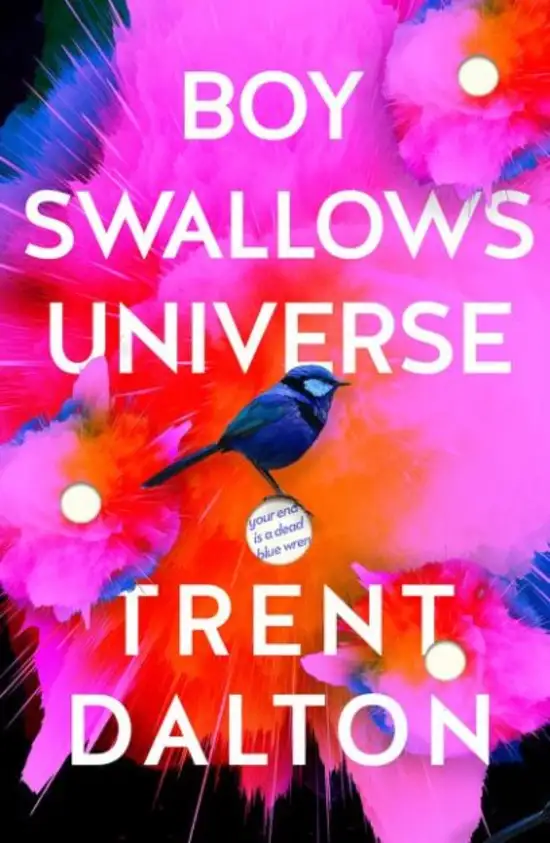
Boy Swallows Universe by Trent Dalton
Gritty reality with a touch of the magical
It’s about the ups and downs of life. The downside is life is short and has to end. The
upside is it comes with bread, wine and books.
Um, so I may have been a little generous with the truth when I said I reviewed all my books. The review I wrote for this one was a single word:
Masterpiece.
Succinct, sure. Not very descriptive though. Here’s a bit more:
Brief rundown
Eli, a 13-year-old boy from Brisbane’s rougher suburbs, lives with his mother, older brother and stepfather in a household of real, honest love. His mum has heroin in her past, his stepdad was a dealer, and his brother hasn’t spoken since something happened at age eight that he doesn’t want to talk about. Slim Halliday, based on a real person of the same name (and also known as ‘the Houdini of Boggo Road Prison’), is a mentor-babysitter in Eli’s life.
Things go downhill, his mum goes to prison, and many other things happen that I don’t want to mention because spoilers. But there’s a prosthetics workshop, some crime rings, and a dead blue wren.
Why I loved it
This book had some delightful references to foods, songs and general vibes from the 80s. And there’s humour in it to break up the pain and intensity (of which there is plenty).
Trauma is a constant and looming presence—basically a main character. Few, if any, of the characters are untouched.
But redemption is also woven throughout, revealed through restored relationships, unexpected friendships and the constant presence of hope, no matter how small.
What it taught me
Boy Swallows Universe gave faces and personalities to people who live tangibly close but outside my world. A couple of circumstances outside our control, a few setbacks or hard choices, and any of us could have found ourselves here.
I learned what I have always known and always need to keep learning: all people, everywhere, are people of worth and value. All people have the capacity for hope and redemption. Pain and brokenness are never far away, but restoration is always possible.
Side note: Boy Swallows Universe is currently showing as a limited series on Netflix. It’s not easy to watch, but it’s incredibly well done. And it’s got Bryan Brown, Simon Baker and Anthony La Paglia in it.
Here’s what Dusk Liney, a trauma-aware birth doula and matrescence coach (and a good friend), had to say about it:
‘It felt so resonant with what I have come to know—that deep love, joy and the best of humanity rise in the rubble of trauma and neglect. In the same way that nature reflects patterns—spiral, trees and stripes—I have seen that wavy line of Eli’s single tear running down his cheek in the faces of pregnant mothers and birth givers. In the same way that Eli’s world was broken open again and again, then met with a loving gaze from an unexpected set of broken eyes—I have seen that look time and time again… Mothers gazing at their newborn baby, generations of cycles washing away down the wave of a single tear. THIS is what I mean when I talk about resilience after trauma.’
As a bonus, the guy with the glorious mullet who plays Gus is also the person featured on the cover photo of Honeybee. Which brings me to…
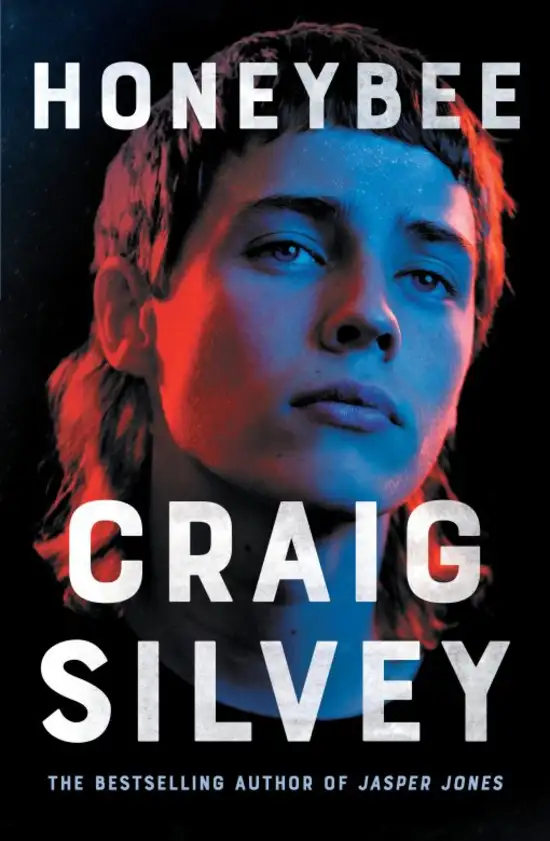
Honeybee by Craig Silvey
Raw, real and masterful
‘But you don’t think I’m a freak or anything?’
‘Mate, I think you’re just you, and there’s
nothing the matter with that.’
Not only were four of the five 5-stars from last year written by Australian authors, but two of them were written by Craig Silvey. Here’s the first.
Brief rundown
Trigger warning here for suicidality, transphobia and violence. Also, I’m deliberately not gendering Sam due to the context of the book. Sorry if it reads a little clunky.
Sam meets Vic on a bridge. The two are there for different reasons but with the same intention. But instead of following through with their plans, they form a strange but sweet bond and become a makeshift family. Sam’s culinary talents bring Vic the actual and emotional nourishment he’s been craving, and Vic’s stability gives Sam refuge from a childhood of violence and uncertainty.
Other gems bring Sam much-needed community and safety: a drag queen who is also a nurse and all-round wise and helpful person; a D&D-loving, nerdy teenage girl who lives next door; and, indirectly, Vic’s late wife, whose diaries—and wardrobe—help Sam find Sam’s true self.
Why I loved it
As a cis woman I would like to say I respect the view some people hold, that a cis-het man shouldn’t have written this book, and I hope my positive review doesn’t offend or exclude.
I loved how complex all the characters were, and that they all got a chance to be funny as well as real and raw. The dramatic neighbour and her entire family are delightfully quirky but also patient, loving and accepting. Vic is humble and gentle and, I think, surprises himself at times. And Sam holds on by a thread that turns out to be much stronger than probably anyone thought, including Sam.
This is a book that stays with you for a while. The opportunity to look into Sam’s world, despite the sadness, violence, hatred and self-doubt that dwell there, feels important. And I’m grateful I got this glimpse.
What it taught me
This book taught me something we all know and all need to learn: that people are more intricate and contradictory than we realise. Kind and horrible, happy and sad, unwise and brilliant. And that our lives aren’t mapped out towards an inevitable end. Sliding doors, butterfly wings, chances and choices—you know what I mean.
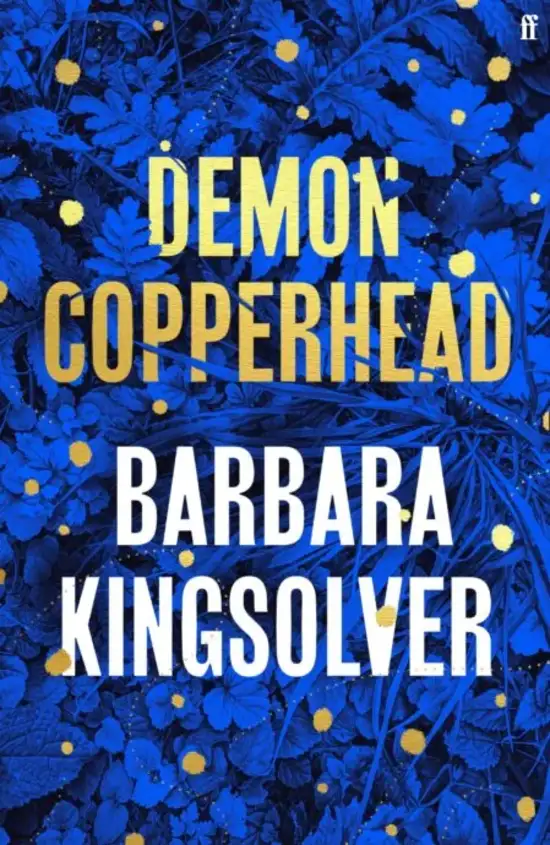
Demon Copperhead by Barbara Kingsolver
Like falling down a mine shaft full of pills. But also a brilliant read.
At the time, I thought my life couldn’t get any worse. Here’s some advice: Don’t ever think
that.
A quote from my own review: ‘Definitely worth reading if you’re up for the emotional journey you’ll go on.’ Yeah, I stand by those words. I needed a few breaks to get through this one, but it was incredible and I’m glad I kept going back.
Brief rundown
Demon’s real name is Damon, and he has red hair so he’s called Copperhead. Just in case you were worried it’s a book about evil snakes. Also, the fact that it sounds like David Copperfield isn’t a coincidence.
The main character was born a bit after me, but it was still fun to reminisce on the musical and other cultural references of the 90s and early 00s. Although, if you were to ask the good people of Reddit, you’d find that many of these are anachronistic.
Accurate or not, these pop culture memories are probably all Demon and I have in common. He was born to a substance-addicted teenaged mother in the Appalachian mining region of south-western Virginia. This was one of the target zones for the initial push to bring OxyContin into common use.
Way too common. And with horrendous consequences.
Why I loved it
You might not believe this. But this book was quite funny. With all his unlikeable qualities, Demon was extremely likeable. I found myself just hoping life would cut him a break.
I could say something here about the indomitable human spirit. But firstly ew, cliches—and secondly I don’t really know what indomitable means. So instead I’ll say that this was gruelling but worth pushing on.
Barbara Kingsolver has a way of getting you to turn the heaviest of pages, and rewarding you for the effort. People are wonderful, and Kingsolver wants us to remember that I think.
What it taught me
Demon Copperhead taught me some details of recent history that perhaps I should’ve already been aware of. I knew OxyContin was an intense drug with a pretty high street value. But I didn’t know how rampant its off-label use was, how many people were/are dying because of it, or how hard reps were encouraged to push it onto doctors.
I learned about the poverty of rural America’s mining towns, and how it had become entrenched over several generations. I got some insight into the overstretched foster system that led to too many stories of abuse and neglect, and the blanket of hopelessness that seems determined to descend upon some places even when people try to push it away.
But hope prevails. Of course it does. Humour, kindness, wisdom and loyalty all manage to poke shiny holes in the doom blanket throughout this brilliant novel.
If you’re in an okay place yourself and can handle the sadness, I probably can’t recommend this one highly enough.
Another side note: Reading this novel led me to read (or, start reading) the non-fiction ‘Dopesick: Dealers, Doctors and the Drug Company that Addicted America’ by Beth Macy, which in turn led me to watch the fictionalised TV series ‘Dopesick’, starring Michael Keaton. I mean, OxyContin is like a whole genre now.
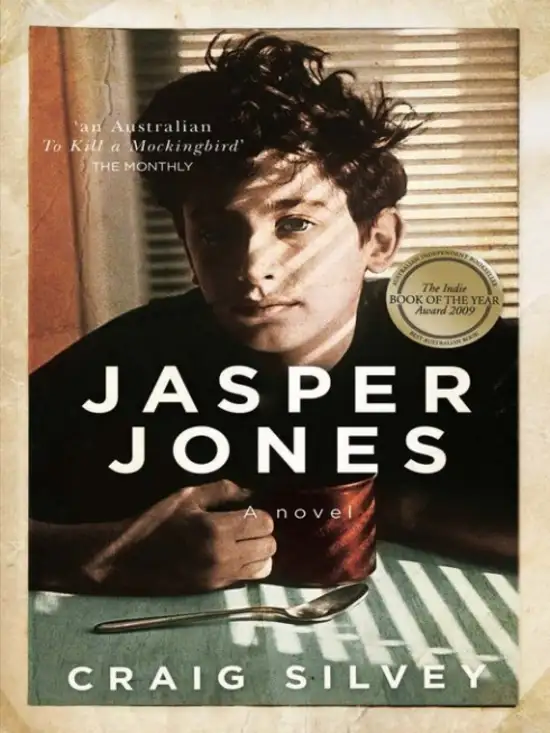
Jasper Jones by Craig Silvey
Murder mystery, racism and cricket-loving teenagers
The more I find out, the more I uncover, the more I know, the less I understand.
Let’s take a break from all those heavy, sad tomes to talk about this little piece of light entertainment. Or we could be honest and say that, while there are plenty of scenes full of funny teenage banter, Jasper Jones is mostly centred around some pretty dark themes. But it’s also brilliant, so let’s continue.
Brief rundown
We’re in a rural mining town again, this time in Western Australia in the 1960s. Jasper is a teenager from a mixed-race background who’s outcast from society, the first to be blamed for almost anything that goes wrong. So when a girl goes missing, Jasper enlists the help of nerdy Charlie to eliminate any evidence that might suggest he’s the culprit.
Charlie finds himself in the role of detective and secret-keeper. He lives in fear of bullies and the scary local hermit, a kind of Boo Radley character. Family life is getting weird and tense. He’s got a crush on the sister of the missing girl. The constancy of his best friend Jeffrey (though he’d probably never admit this) is the one thing keeping him anchored.
Why I loved it
While I think this is young adult fiction, it doesn’t shy away from the real and the gritty. The fact that it’s told through the eyes of a teenage boy just makes it more engaging. And the writing is wonderful.
The frequent banter between Jeffrey and Charlie—about girls, superheroes, cricket and whatever else pops into their heads—gives you a breather amongst all the family tension, prejudice, violence and suspicion. (I was uncomfortable with the sprinklings of ableist language in their chatter, but then it was probably very much true to the era.)
Also, To Kill a Mockingbird has long been a favourite of mine and the references are really engaging. You don’t need to have read TKAM to enjoy Jasper Jones, but if you went to an English-language school any time in the late 20th or early 21st century then surely you have. Right?
What it taught me
This one was probably more about insight than direct learning. I’m aware that racism and prejudice exist, and I know that horrendous and unspeakable things do happen. But a superbly-written novel can help me find perspective, and empathy, that far exceeds knowledge.
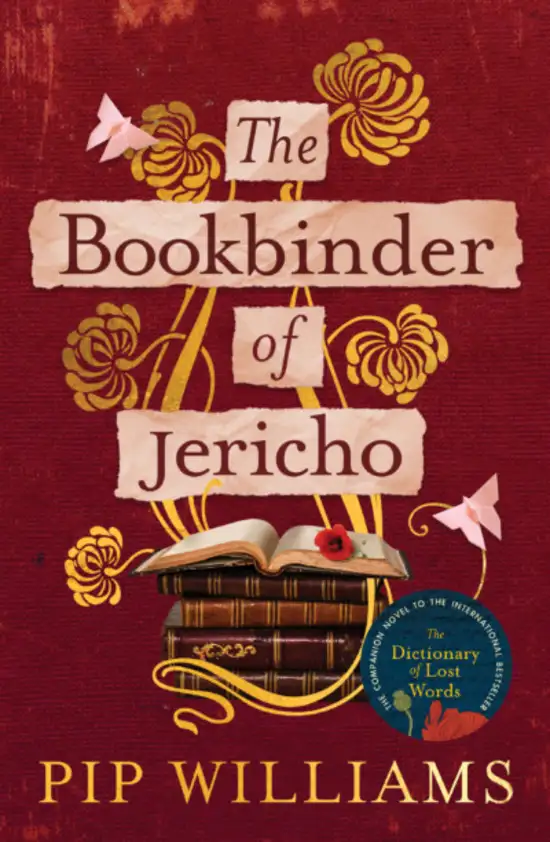
The Bookbinder of Jericho by Pip Williams
Historical fiction told through less-heard voices
As soon as someone cracks the spine, a book develops a character all its own. What
impresses or concerns one reader is never the same as what impresses or concerns all others. So,
each book, once read, will fall open at a different place. Each book, once read, I realised, will
have told a slightly different story.
The Dictionary of Lost Words, also written by Pip Williams, was my standout book of 2020—a beacon in the Covid darkness. So I was eager to read this ‘companion piece’ novel, which overlaps in time and features a couple of the same characters as the Dictionary. And I’m pleased to say that I was pleased.
Brief rundown
Peggy and Maude are young adult twins grieving the recent loss of their mother. They live on a canal boat in Jericho, Oxford, in borderline poverty, and work in the bindery at the Oxford University Press.
Peggy is an intellectual without the education. She hoards books, loves learning, and dreams of an academic life. But it’s not what she was born into, and also she’s got a kind of caring responsibility to her sister.
Maude is autistic and needs some supports and structures to enable her to complete her work and household tasks. Her speech patterns are complex, mainly using echolalia (repeating heard words or phrases), but her loved ones are mostly able to understand her language.
When World War One starts, and many of the men are sent away, the gender-segregated world of Oxford begins to change. Peggy and Maude welcome a group of Belgian refugees into their lives, and they’re all affected by the war. It feels patronising to say that they both grow into maturity and independence throughout the story. But they kinda do.
Why I loved it
Like the Dictionary, this one is a slow, gentle ride. It’s comfortable, like rocking gently in a boat on a calm sea. Pip Williams treated her characters with respect and dignity, even while she was ripping them open.
And there was some ripping. The violence and horror of war, the injustice of classism and sexism and the complexity of relationships are woven through this novel and held together with a thread of sadness. But there are little shiny bits of hope, humour, love and kindness that kept me turning the pages.
What it taught me
I had no idea about the plight of the Belgian people in WW1, or that many of them were sent to Oxford for refuge. I didn’t know much at all about book-binding, and I loved that it was described like a dance. It’s probably not true to say I didn’t know that canal boats were associated with poverty—on thinking about it, it feels Dickensian—but I had more recently put canal boats and privilege together in my head (I’m thinking Bear Grylls, Jamie Oliver, you know).
May 2024 bring you all the good reads!
Hey, I know we’re already one-third of the way into 2024. But here’s to a year of great reading anyway. 🥂
Prefer reading to writing? Or do you have some writing to do but no time to do it? Hit me up if I can help.
Write something for me!